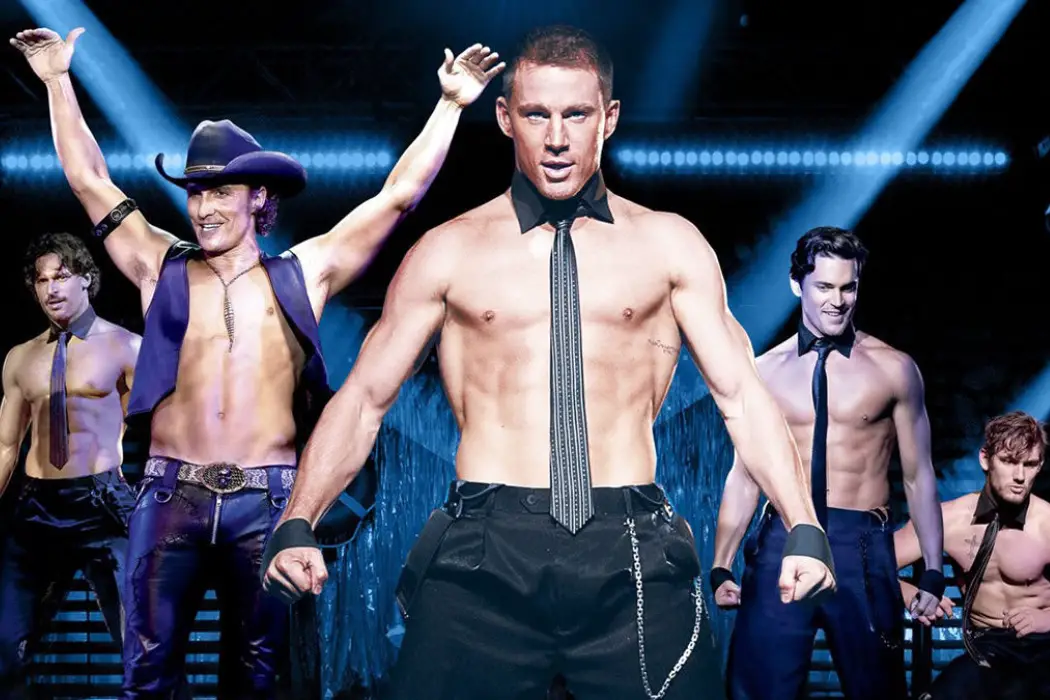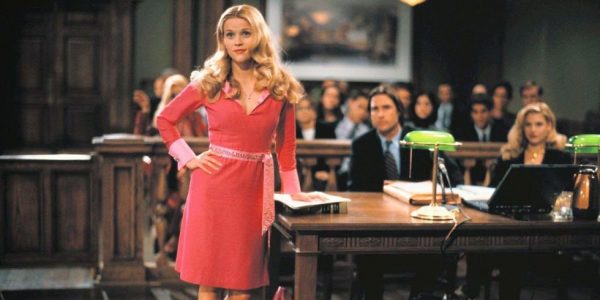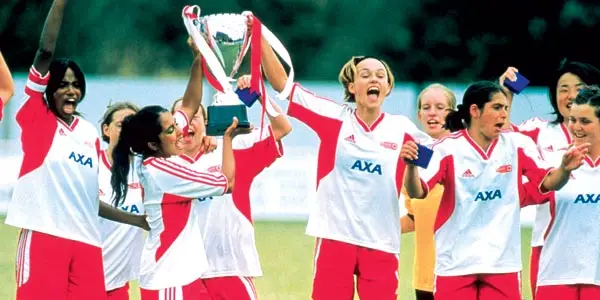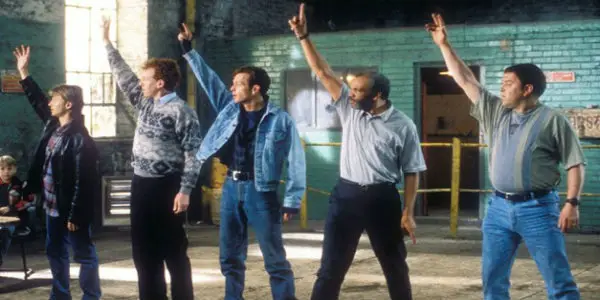GOAL! How To Successfully Tackle Gender Politics On The Big Screen

Rachael Sampson is a Yorkshire screenwriter and film critic. She…
A female footballer and a male ballerina walk onscreen – sounds like the start of a terrible joke told in the pub by Frank; the local bigot who wears multiple gold chains and an off-white vest. Unlike Frank, many see the important side of tackling gender stereotypes in film and television.
People need to see all kinds of diversity on screen, to show that it is more than okay for women to put on a pair of boxing gloves or for men to have a song and dance. There is an unwritten rule that roles or activities have been socially categorised as gender exclusive, which creates a stigma or stereotype for those who challenge it. Cheers society.
Cinema has a duty to be representative; to challenge perceptions and educate people who poke fun at things they find alien. Maybe if Frank watched Billy Elliot and saw the blood, sweat and tears poured into ballet, he’d soon realise his attitude is the only thing that’s alien in this day and age. Frank is a stereotype himself, and any potential “Frank’s” out there who read this will probably take offense at the generalisation. Nobody likes to be pigeonholed. It’s not fair and it’s hardily ever a correct assumption. It’s time to look beyond labels, and that starts with film. There’s more to Frank than just a stained vest.
What Not To Do
To truly comprehend how filmmakers can (and have) successfully conquered gender politics, one needs to understand why some films that deal with gender politics haven’t quite made the cut, even though their hearts were in the right place (sort of). The best, or most infamous example of this is Legally Blonde. On the surface it doesn’t seem problematic: A young, attractive girl (Reese Witherspoon), who is only seen for her beauty and money, and is categorised as an American airhead, proves everyone wrong by getting into Harvard Law School, and unveils that the witness on the stand in court is in fact, the killer. What could possibly be wrong with that? She has overcome her stereotype, right? Wrong.

The very crux of the movie; that pivotal make or break scene in the courtroom where Elle Woods cracks the case, is only achieved by the fact that she knows someone shouldn’t get a shower after they’ve had a perm… Elle’s knowledge of hair and beauty isn’t really overcoming gender stereotypes is it? Imagine if she was working on any other case out there where the witness’ beauty regime wasn’t vital to the crime, she would most likely, not succeed (or not in such epic proportions as the film displays). Consider her performance in the courtroom before the issue of the perm is raised – she looks like a lost puppy with no lead or argument. Even the judge is practically rolling her eyes.
Also, don’t forget how Elle gets a place at Harvard: she submits a video of her in a bikini and it is accepted on the agreement of 8 men. The overall implication of that scene holds very sexist connotations – just what’s missing from a film meant to overcome the archetype.
Bend it like Chadha
The go to example of a film that successfully and brilliantly tackles gender politics is Bend it Like Beckham. Not only does the film overcome the stigma around women playing football, but also the perceived societal issues around women from Eastern religions participating in sports in general. It’s no coincidence that the movie’s success correlates with the fact that Bend it Like Beckham was written and directed by a woman with Eastern heritage (Gurinder Chadha).
It shows the truth of women’s football, which surprisingly, is no different to men’s. Those characters who don’t agree with, or understand women playing football become outsiders that eventually get sucked into the sport the more they are educated on it. Just like in life, those who tend to have an issue with people’s lifestyle choices only disagree because it is unfamiliar.
By the end of the film, cultures come together and everyone wholeheartedly support Jess and Jules’ (Parminder Nagra and Keira Knightley‘s) passion, making it a feel good drama that packs a progressive punch, overcoming the gender bias. Women who watch the film feel safe in Chadha‘s hands, as she shows aggression on the pitch, ugly tackles and complex footwork. She doesn’t dilute the sporting action. These moments are also met with comedic one liners, making the topic at hand translate across with good humour and playfulness.

Similarly to Bend it like Beckham, other films that successfully overcome the stigmas around women in male dominated industries include: Million Dollar Baby, A League of Their Own, Hidden Figures and Battle of the Sexes. Most of these films aren’t fictitious either; they showcase real women who have gone down in history for changing the world, with the added pressures of sexism making their missions harder. Hopefully their brave stories will encourage other women to do the same and not be disheartened by societies unwritten rules.
The Magic Monty
Everyone is aware of the stereotypes men are subjected to when their activity or role doesn’t include exuding dominance, aggression or power/any synonym for “masculinity”. Masculinity in itself is a dud word because the very definition is flawed since “femininity” is seen as its antonym. What does masculinity mean aside from “not woman”? Vigour, authority and strength aren’t exclusively male traits, just like beauty, grace and softness can also be applied to men. A man isn’t lesser for adhering to these characteristics. If anything he is more so for differing from the archaism, and vice versa.
The initial film which springs to mind for most people when considering a successful deliverance of overcoming gender politics on screen is the oily, muscly Magic Mike (notable for hybridising the old fashioned definitions of masculine and feminine, to show that both attributes are present in men). Before the American male-stripper movie achieved almighty success across the globe, there was a British indie film set in Sheffield prior to this that tackled the same issues, however from a working class perspective and with more realistic body shapes: The Full Monty (directed by Peter Cattaneo).
This 1997 comedy drama depicts a recently separated father (Robert Carlyle) struggling to pay child support, so he comes up with the idea of doing a strip-tease act with his friends to raise money. The men within the movie have brilliant character arcs; at the start they are established as the very people who would tease and taunt male strippers, then as they learn/rehearse/become strippers themselves, they flip the bigoted mentality on its head.

Since these men initially take the view of that percentage of judgmental people within society who still have a mindset from the 1940’s and think stripping exclusively female, that type of audience member is drawn into the narrative: They learn alongside the characters about this alien style of performance, and are able to laugh along with them as they find their feet. The cast completely challenges male aesthetics, and even display themes of body insecurities within the male community – a progressive moment for a 1997 film.
What also helps to overcome this gender stigma is the film’s “Britishness”. These men are real, working class, British folk; replicating the British audience’s friends, family and neighbours etc. The characters feel familiar, and with the use of British humour, the “alien” aspect of the narrative ends up feeling close to home.
Other films that also deal with gender politics around men in supposedly female roles include: Swimming with Men, Billy Elliot, Toast, Kinky Boots (and Magic Mike).
The Future of Gender Politics in Film
There is something incredibly important to note about most (if not all) of these films in terms of progression, and that is; they all depict the bias. There’s always one or more scenes outlining the gender issue. Sometimes acknowledging there is an “issue” plants one in the mind of the spectator when ultimately, men and women should be treated the same within these stories. This not only rings true for films around gender politics, but movies with queer, ethnic, disabled etc. characters too. How often do audiences see a gay character in film or a television show whose main story line isn’t based around their sexuality? It hardily ever happens.
Diversity on screen has come such a long way over the last 20 years, but now it is time to push forward and portray diversity without making their “difference” an obstacle within the narrative. The day diversity is wholeheartedly accepted on screen, or not even given a second thought (in fictitious worlds, anything goes), it will subsequently bleed into the real world. The youth of today are constantly consumed by the media; it is their primary education source. It’s time they were taught through this medium that people are different, period. That starts with portraying a wide variety of characters without negative consequences.
Ultimately, it all comes down to the fundamental notion that while people are vastly different, paradoxically they are the same: everyone wants to be happy, safe, loved and valued. Everyone. Since that’s the case, difference needs to be understood and accepted with the knowledge that people who are polar opposite are ultimately kin. The day more films reflect this idea, will be the day men, women and minorities start to feel a little more secure in this world.
What films do you think successfully tackle gender politics? Share your thoughts and comments!
Does content like this matter to you?
Become a Member and support film journalism. Unlock access to all of Film Inquiry`s great articles. Join a community of like-minded readers who are passionate about cinema - get access to our private members Network, give back to independent filmmakers, and more.
Rachael Sampson is a Yorkshire screenwriter and film critic. She often finds herself daydreaming about Andrea Arnold's filmography or crying over The Graduate.













